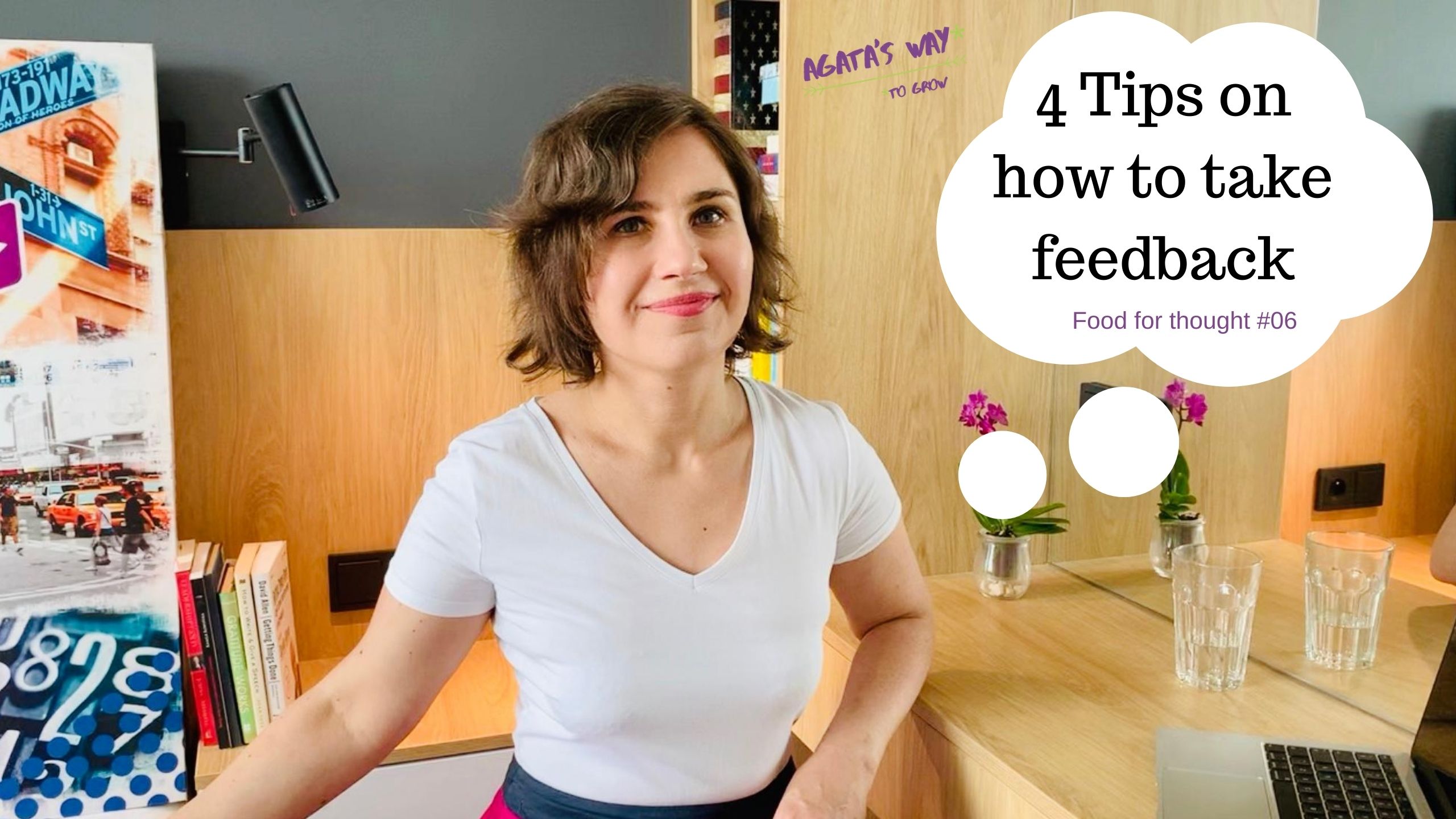I used to avoid feedback as often as possible, because it was simply … painful. You’re doing something from the bottom of your heart and then you hear: “Yeah, it’s good, but” or “not bad, but …”
This “but” destroys all your hopes and opens all your fears you actually had deep down. ?
I’ve been playing with my YouTube channel for two months or so. I do spend a lot of time preparing these videos, so I thought to myself: I can’t waste my time doing something endlessly that maybe is worthless to most of you …
I don’t want to blindly keep doing the same thing not knowing if this is the right path. Sure thing – we shouldn’t give up at the very beginning of our new endeavors. In fact, some people, like writers or actors are discovered and appreciated after years. Yet, we should keep improving what we’re doing or changing at least slightly our course of activities.
What’s more, I’m convinced there’s no other way to make my channel better and more valuable for you guys. I mean – playing with it and asking for feedback seems like the right way. How else can we know what to improve? Even if we’re thoughtful and reflective, we still have our subjective perspective. So, we should SEEK OUT AND GET OTHER PEOPLE’S INSIGHTS, PERSPECTIVE ON WHAT WE DO.
And yes, receiving feedback gets awful, uncomfortable, and painful most of the time. Unless we get used to it. As I strongly believe we can work out almost everything. It’s like building a muscle (you don’t work out, you don’t get muscles): it takes time, but it we practice it on a regular basis, we’ll see the results.
So I created a survey and I asked some people I trust for filling it out.
And it wasn’t that bad. I learned I should be more me in my videos because my students love the way I am – funny, easy-going girl and I was advised to prepare more words along the way.
And this survey was an incentive to write this post and make another video on how to take feedback.
What is feedback? According to Anna Carroll, the author of “Everyday feedback – the workbook”, “Feedback is information from past action that is used to guide future action.”
Here are some points I’m trying to stick to.
1. Just admit you need it to make progress. Smart leaders, managers, professionals will look for it every day. Make everyday feedback your lifestyle says the author, Anna Carroll.
2. Make it a habit. Start asking people for their feedback more and more often. Explain why you need it and warn them: you’re ready to hear it out regardless of your friendship, well-established relationship. Your friends or colleagues should know the feedback they give you shouldn’t be sugarcoated.
3. You don’t need to accept all feedback you get. First: Some people are not your target or simply they aren’t the right people to assess. Choose those folks whose opinion you respect and which really means something to you. Period. Secondly some feedback is not relevant to improve what you’re particularly working on at that moment. Don’t go into great details. Sieve the information, strain it out, filter it. Thirdly, keep your main goal in your head. Consequently, keep asking yourself why and what exactly you want to know.
4. Thank people for their effort. Show them your gratitude. It may not be easy for them. And — don’t be defensive once you hear their opinion!
So what do I want to tell you by this post/video?
Ask for feedback as a maniac if you want to get ahead with what you’re currently doing.
It’s a must, something you shouldn’t avoid, choose the right people and sieve the messages you receive, and thank for the feedback. Appreciate people’s effort.
And here is this brand-new video. Let me know what you think of it. You know, I’ll appreciate your feedback more than anybody else ?
Here is some selected vocabulary:
I do spend = I really spend
our new endeavors = our new activities
seek out insights = explore and find perspectives, views
fill out a survey = complete a questionnaire
incentive = stimuli
guide future = show future
stick to some points = follow some points
regardless of well-established relationships = beside well-built relationships
sugarcoated = too nice, too sweet
relevant to = related to
sieve feedback = filter feedback
gratitude = thankfulness, gratefulness, a feeling of appreciation

